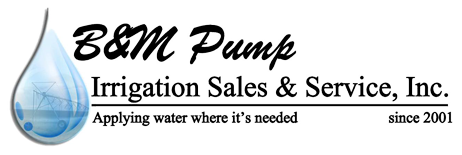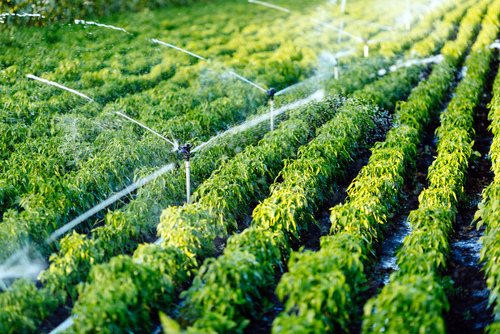Drip Irrigation: What Crops Need It, and Why is it Beneficial?
Drip irrigation is a popular irrigation method that involves delivering a slow and steady supply of water directly to the roots of plants. This efficient system has become increasingly popular among farmers and gardeners due to its numerous benefits for crop growth, water conservation, and overall sustainability. In this blog post, we will explore the crops that benefit most from drip irrigation and why this method is so advantageous for agriculture.
Crops that Benefit from Drip Irrigation
1. Fruit and Nut Trees
Fruit and nut trees are one of the most common types of crops that benefit from drip irrigation. These trees have deep root systems that require a consistent and deep watering method. Drip irrigation allows water to be delivered directly to the roots of the trees, ensuring that they receive the moisture they need without wasting water through evaporation or runoff. By providing a steady supply of water, drip irrigation can help fruit and nut trees produce healthy and abundant crops.
2. Vegetable Crops
Vegetable crops, such as tomatoes, peppers, and cucumbers, also benefit greatly from drip irrigation. These crops require consistent watering to ensure optimal growth and fruit production. Drip irrigation can be customized to deliver water precisely where it is needed, reducing the risk of overwatering or underwatering that can lead to poor crop yields and plant health. Additionally, the drip system can be set to deliver water at specific times of the day, which can help reduce the risk of disease and pest infestations in vegetable crops.
3. Row Crops
Row crops, such as corn, soybeans, and wheat, can also benefit from drip irrigation. While these crops may not have the same water requirements as fruit trees or vegetable crops, they can still benefit from a consistent and efficient watering method. Drip irrigation can help row crops maintain optimal moisture levels throughout the growing season, which can lead to higher yields and improved crop quality. Additionally, drip irrigation can help reduce soil erosion and nutrient leaching in row crop fields, making it a sustainable irrigation option for farmers.
Benefits of Drip Irrigation
1. Water Conservation
One of the primary benefits of drip irrigation is water conservation. Traditional irrigation methods, such as flood or sprinkler irrigation, can lead to significant water wastage through evaporation, runoff, and overspray. Drip irrigation delivers water directly to the roots of plants, minimizing water loss and ensuring that plants receive the moisture they need to thrive. By using drip irrigation, farmers and gardeners can significantly reduce water usage and conserve this precious resource for future generations.
2. Improved Plant Health
Drip irrigation can also improve the health and vigor of crops. By delivering water directly to the roots of plants, drip irrigation helps plants absorb moisture more efficiently and effectively. This can lead to deeper root growth, stronger plants, and increased resistance to disease and pests. Additionally, the slow and steady supply of water provided by drip irrigation can help prevent water stress in plants, ensuring that they remain healthy and productive throughout the growing season.
3. Increased Crop Yields
Another benefit of drip irrigation is increased crop yields. By delivering water precisely where it is needed, drip irrigation can help plants reach their full potential and produce higher yields. This is especially important for high-value crops, such as fruits and vegetables, where crop quality and quantity can directly impact profitability. Drip irrigation can help farmers maximize their crop yields while minimizing water usage, making it a cost-effective and sustainable irrigation option.
4. Reduced Labor and Maintenance
Drip irrigation systems are generally easy to install and require minimal maintenance compared to traditional irrigation systems. Once a drip system is set up, it can be automated to deliver water at specific times and rates, reducing the need for manual watering and monitoring. This can save farmers and gardeners time and labor, allowing them to focus on other important tasks in the field. Additionally, the reduced labor and maintenance requirements of drip irrigation systems can help lower overall production costs and increase profitability for farmers.
Summary
Drip irrigation is a highly beneficial irrigation method that can help a wide range of crops thrive and prosper. From fruit and nut trees to vegetable crops and row crops, drip irrigation offers numerous advantages for farmers and gardeners looking to maximize crop yields, conserve water, and promote sustainable agriculture. By delivering water directly to the roots of plants, drip irrigation can improve plant health, increase crop yields, and reduce labor and maintenance requirements. Overall, drip irrigation is a smart and efficient irrigation option that can benefit both crops and the environment.
Need an Irrigation System Company in Seminole, TX?
Welcome to B&M Pump Irrigation Sales & Service, Inc.! We are your professional irrigation specialist! Our typical services include complete pump service, water well service, system design, and pivot systems. We deliver personal service and reliability to our customers in Texas, Oklahoma, New Mexico, and Arizona. No matter where you are in the southwest, B&M Pump Irrigation Sales & Service, Inc., is a name you can trust. We strive to educate owners and operators on making pumps and motors last longer and work more efficiently. We sell good quality products at a fair price and stand behind the products we sell. Give us a call today to speak with one of our service experts today!
Categorised in: Crops, Drip Irrigation, Irrigation

